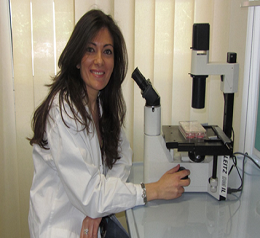Scholars International Webinar on
Cancer Research and Therapeutics
THEME: "Frontiers in Cancer Research and Therapy"
 16-18 May 2022
16-18 May 2022  Online | Virtual
Online | Virtual THEME: "Frontiers in Cancer Research and Therapy"
 16-18 May 2022
16-18 May 2022  Online | Virtual
Online | Virtual 
University of Calabria, Italy
Title: Obesity and Breast Cancer Endocrine Resistance: Progress to Understanding the Molecular Connections
The prevalence of obesity has been increasing at an alarming rate in several developed and developing countries, reaching pandemic proportions over the last two decades. This growing incidence has deep clinical implications, since obesity is a key driver of serious health problems, including cancer. Indeed, prospective epidemiological studies have shown that excessive adiposity strongly impacts risk, prognosis and progression of breast cancer. Importanlty, obesity status has profound implications on therapeutic management of patients, especially related to the efficacy of standard endocrine therapies with selective estrogen receptor modulators (SERMs) or degraders (SERDs) and aromatase inhibitors (AIs). Several hypotheses have been proposed to unravel the direct link between obesity and endocrine therapy resistance. Certainly, the revised concept of adipose tissues from an inert depot for body energy to endocrine and immunologically active organs placed particular emphasis on the potential role of different obesity-related host factors in various biological processes. The pathological expansion of white adipose tissue in obesity leads to the development of a dysfunctional adipose tissue which produces adipokines, insulin-like growth factors pathways, inflammatory cytokines, estrogens, lipid metabolites, that can interact with several cancer cell-intrinsic signalings, rendering breast cancer cells resistant to endocrine treatments. Here, we provided an update of the recent epidemiological research focused on obesity-endocrine resistance link and discussed the molecular mechanisms by which obesity-associated changes may affect breast malignancy. Because of obesity and its pathophysiological sequelae on the rise, a more detailed knowledge of this multilayered complexity has the potential to identify specific biomarkers and novel targets that may allow a personalized management of patients affected by breast cancer and obesity. In addition, being increased adiposity excess a commonly accepted modifiable risk factor, multiple opportunities for primary to tertiary prevention should be considered as a priority area of action.